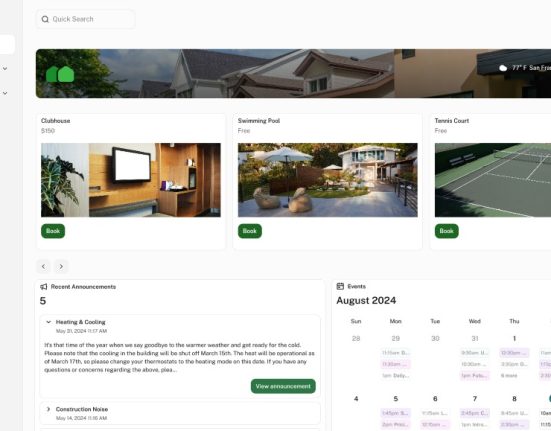Alex Vasquez is the owner of Rhino Realty Property Management and Rhino Realty B&B, entrepreneur, investor, advisor, author and speaker.
As many of us know, affordable housing has become one of the most pressing challenges facing cities, tenants and property owners across the country. An insufficient housing supply can lead to rents rising faster than wages, which in turn leads to households often spending more than the ideal 30% of their income on their rent. While much of the conversation about affordable housing centers around policymakers and developers, you as property manager are a critical player in this ecosystem, and the position of property manager uniquely positions you to shape equitable housing practices in ways that benefit both residents and owners.
Understanding The Affordability Challenge
In order to understand our role in advancing affordable housing, we need to first understand the reason behind the problem, especially knowing that it is not the fault of any given person. Instead, from my perspective, it’s a nuanced reaction to a supply-demand imbalance with new housing often targeting high-income renters, the redevelopment of neighborhoods making it difficult for long-time renters to remain, and limited public resources like Section 8 housing assistance programs. These causes can seem like immovable forces, but it’s important to remember that there are practical and beneficial actions property managers can take to help actualize real community inclusion.
Property Managers: Frontline Advocates
As the person interacting with the tenants on a daily basis, property managers are usually the first to hear about a tenant’s struggles, whether it’s a missed payment, a maintenance concern or any of the many other possibilities. Because property managers have such an on-the-ground presence with the residents, they have the chance to act as the go-between for the tenants and the property owners. But with that power also comes the responsibility to work with both the tenants and the landlords to hear their struggles and work to brainstorm creative solutions that can help keep a tenant housed.
Housing Affordability In Practice
So, you’ve decided that you want to be an advocate for your tenants who may be struggling, but what does that mean on a practical level? How can you support housing affordability through transparent and compassionate rent policies? Here are a few practices to consider.
• Rent increases are a part of managing a property as the cost of living continues to climb. But be sure that the increase is based on market analysis rather than opportunistic pricing. Transparency is key.
• Avoid additional or hidden fees, such as application fees, late payment fees or cleaning fees that may hurt low-income renters more than those with higher incomes.
• Remember that tenants have their own lives with hardships like illnesses or job loss. Offering payment plans or deferrals during these difficult times can go a long way towards making housing affordable. Bear in mind that often these flexible policies can yield long-term gains through lower turnover amongst tenants and keeping all of your doors filled.
Resident Stability: A Win-Win
A stable tenant is a happy tenant. Not only that, but they remain a reliable source of income for property owners. Too often, management practices prioritize short-term profits over the benefits that can accrue when you retain tenants throughout the long term. There are plenty of techniques to consider to both bolster affordable housing as well as consistent income. Be sure to communicate clearly in ways that build trust between tenants and management. Consider offering flexible lease options that can accommodate changing family or employment circumstances. Second-chance screenings can allow you to protect your properties while giving tenants with past credit issues or evictions the chance to obtain housing they can afford.
Leveraging Technology
Technology can be a powerful tool for supporting affordable housing, particularly when it’s used intentionally. Beyond just collecting rent, modern property management platforms can help managers spot early signs of financial trouble for their tenants and give them a chance to step in before a tenant falls too far behind. Mobile portals make it easier for residents to do all the things involved with being a tenant—paying rent, requesting maintenance and staying in touch with their property managers—and this is especially true for tenants juggling multiple jobs or family obligations. But it’s just as important to make sure these tools are accessible to everyone, which means offering support for different languages and making sure that people without reliable internet or smartphones aren’t left behind.
Property managers take care of the physical space, but more than that, they are relationship-builders and problem-solvers who have the ability to be advocates for equitable housing. With housing insecurity touching a significant percentage of Americans, the role of the property manager extends beyond maintenance tickets and lease renewals. Property managers are capable of managing homes with purpose, compassion and accountability.
Forbes Business Council is the foremost growth and networking organization for business owners and leaders. Do I qualify?








